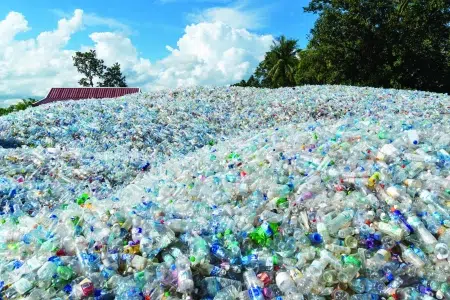How prepared are you for the Plastic Packaging Tax? This is probably one of those questions we all like to avoid, but it’s got to be asked.
As Benjamin Franklin said, “By failing to prepare, you are preparing to fail.” And none of us want to fail when it comes to meeting tax obligations and their potential knock-on effects on business. On the contrary, by putting some time in now to prepare, you might find you can actually benefit – and add significant value to your business – from this new and imminent taxation.
But firstly, let’s take a quick look at what the Plastic Packaging Tax (PPT) will mean for your organisation.
What the Plastic Packaging Tax means for you
The PPT takes effect on 1 April 2022. Its overarching aim is to encourage the use of recycled rather than new plastic within plastic packaging. It will apply to plastic packaging manufactured in, or imported into the UK, that does not contain at least 30% recycled plastic, at a taxable rate of £200 per tonne.
You will be liable to register for the PPT if you import into the UK, or manufacture in the UK, plastic packaging or products contained in plastic packaging. Most importantly, you must register even if your packaging doesn’t require you to pay tax. In addition, updates continue to be applied to the Plastic Packaging Tax from HMRC, including recent changes to the ‘PPT Statement’ that you need to be aware of.
Changes to the Plastic Packaging Tax in the Autumn budget
Following announcements on the 27th October, six revisions to Plastic Packaging Tax have been proposed in the Autumn budget include:
- To allow HRMC to modify the timing of an import, and the meaning of import and custom formalities.
- Ensure that businesses who are below the de minimus threshold, who currently do not have a liability to register, do not have to pay the tax.
- Provide tax reliefs for persons enjoying certain immunities and privileges, such as visiting forces and diplomats, ensuring compliance with international tax agreements.
- Transfer the obligations and entitlements of PPT group members to the representative member of that group.
- Require HMRC to notify the representative of a PPT group of the date that applications for and modification of group treatment will take effect.
- Change certain terms used to describe unincorporated bodies to ensure consistency throughout the legislation.
As you can see with PPT, that the legislation is still being discussed. In a nutshell: you need to be prepared and kept up to date.
Prepare to succeed with the Plastic Packaging Tax
One crucial first step is to action an impact assessment across your organisation. This will help you develop a more robust picture of how the tax will affect your business, your operations, your processes.
We’ve devised a handy checklist for actions that can help you get started:
- Familiarise yourself with the new rules and obligations
- Assess supply chains and who the tax will affect
- Consider who will be responsible for the PPT accounting
- Establish training needs for staff and systems for compliance
- Initiate registration with HMRC and plan for annual registrations and de-registrations
- Develop reporting framework and administration for tax returns
- Assess any future changes to contracts and pricing
- Develop stakeholder communication and prepare reputational management strategy
One additional and vital factor as part of any impact assessment is to research alternative packaging options. The PPT naturally creates an opportunity for your organisation to realise your sustainable ambitions – choices that will save you money, improve your reputation and help preserve our environment. And this is where we can also help.
We’re here to help you prepare – and benefit

Acopia Plastic Packaging Tax eGuide
We know the importance that customers place on recyclable packaging. And we can help you make sense of the confusion across the industry and with consumers around the issues of plastics. Furthermore, we can guide you towards solutions that provide real benefits to the environment and to your business, supporting you to make sustainable packaging and process choices that are right for your organisation and reduce your tax liability. For instance, our range of high performance hand and machine pallet wrap reduces plastic wastage by 40% and costs by up to 25%.
By packaging efficiently, you can not only cut costs and time, but you can show you care about your environmental impact and improve your brand reputation and stakeholder relations. So, by planning for the PPT, you can prepare to succeed, with choices that will benefit your whole organisation.
To help you prepare for what the tax will mean for you and how you can benefit, we have created a free eGuide: Is your business prepared for this new taxation?
Download our Plastic Packaging Tax eGuide here
Or get in touch with us using the form below and let’s chat about how Acopia can help you make the best sustainable packaging and process choices that are right for your individual business.
